Digital marketing has revolutionized the way businesses connect with their target audiences. One of the most crucial elements of this online landscape is content media. From blog posts and videos to social media and podcasts, content media plays a pivotal role in capturing attention and driving conversions. Is yours up to scratch? In this article, we’ll explore the role of content media in digital marketing, its power in shaping consumer behavior, its connection to SEO, and its synergy with social media platforms. We’ll also delve into the future of content marketing and the emerging trends in this dynamic field.
Understanding the Role of Content Media in Digital Marketing
Content media refers to any form of digital content created and distributed for marketing purposes. This includes blog articles, videos, podcasts, infographics, social media posts, and more. Essentially, any content your business produces to engage, educate, and entertain your audience falls under the umbrella of content media.
The evolution of content in marketing is remarkable. It has evolved from traditional forms of advertising, like TV commercials and print ads, to a more interactive and targeted approach. These days, consumers want to feel connected to brands. They crave value and authenticity. Content marketing allows you to deliver precisely that by fostering conversations, building relationships, and establishing your business as a thought leader in your industry.
Some of the different types of content media include:
1. Blog Articles
Blog articles are a popular form of content media for providing valuable information to your audience. These articles can cover a wide range of topics related to the industry, product reviews, how-to guides, and more. By consistently publishing high-quality blog articles, you can position yourself as an expert in your field and attract a loyal following.
2. Videos
Videos have become a compelling tool in digital marketing. Whether it’s a product demonstration, a behind-the-scenes look at your company, or a customer testimonial, videos captivate and connect with your audience on a deeper level.
3. Podcasts
Podcasts have gained immense popularity in recent years. They’re convenient for your consumers as they can listen to them while commuting, exercising, or doing other activities. By hosting a podcast, you can establish yourself as an industry leader and reach a wider audience.
4. Infographics
Infographics enable you to present complex information in a digestible format. They combine images, charts, and text to convey data and statistics in a visually appealing manner. They’re also highly shareable and can help you increase brand awareness and drive traffic to your website.
5. Social Media Posts
Social media platforms have become an integral part of content marketing. Brands like yours create engaging posts with images, videos, and text to connect with their audiences. These posts allow you to interact with your followers, share updates, and promote your products or services.
The Power of Content Media in Shaping Consumer Behavior
When it comes to consumer behavior, content media holds incredible influence. By tapping into the psychology of human decision-making, you can use content to sway consumer opinions, drive purchase decisions, and create brand loyalty. How does this work?
The Psychology Behind Content Media
Emotions are a driving force behind consumer decision-making. Using content to create compelling narratives that resonate with your target audience can help you establish an emotional connection with them. As a result, your consumers are more likely to trust it, choose it over competitors, and engage in repeat purchases. The narrative element of content media allows you to shape consumer perceptions, values, and beliefs, potentially influencing their behavior.
Take the example of a clothing brand. Through storytelling, they create content that showcases real-life stories of individuals who have found confidence and self-expression through their clothing. By highlighting these personal journeys, the brand taps into the emotions of their target audience, making them feel inspired and connected. This emotional connection leads to a positive perception of the brand and a desire to align with its values.
Content media allows you to showcase your expertise and build consumer trust. By providing valuable and relevant information, you can position your business as a go-to source of knowledge. For instance, a skincare brand can create content that educates consumers about different skin types, common skin concerns, and the benefits of using specific ingredients. By sharing this information, the brand establishes credibility and becomes a trusted advisor in the eyes of the consumers.
Content Media and Consumer Decision-Making
Content enables you to educate and inform your target audience. By providing valuable and relevant information, you can build trust and position yourself as an expert. This is particularly important in industries where consumers conduct thorough research before purchasing. According to a study by HubSpot, 78% of consumers believe that organizations providing custom content are interested in building good relationships with them. This showcases the impact that your content can have on customer decision-making processes.
For example, if you work for a tech company, you could create blog posts, videos, and infographics that explain complex technological concepts in a simple and accessible manner. By breaking down these concepts, you’d empower consumers to make informed decisions about their tech purchases. This educational content would build trust and position your business as a reliable source of information, increasing the likelihood of consumers choosing your products or services.
Content Media and SEO: A Crucial Connection
In the digital realm, search engine optimization (SEO) plays a vital role in driving organic traffic to websites. Did you know that content media and SEO go hand in hand?
The Influence of Content Media on SEO Rankings
Search engines like Google prioritize high-quality, relevant, and engaging content when ranking websites. By producing valuable content, you can improve your SEO rankings and increase your business’s online visibility. This means that tailored blog articles, videos, and other forms of digital content can help you attract more organic traffic, generate leads, and boost conversions. In fact, according to a study by the Content Marketing Institute, companies that publish 16 or more blog posts per month receive 3.5 times more traffic compared to those that publish less frequently.
Optimizing Content Media for Better SEO
To optimize your content for SEO, focus on keyword research, strategically using relevant keywords throughout your content, and ensuring your content is easily shareable and accessible. Additionally, incorporating multimedia elements like images and videos can enhance your user experience and improve SEO rankings.
Social Media Platforms and Content Media: A Dynamic Duo
When we talk about content, we can’t overlook the impact of social media platforms. Social media enables businesses like yours to distribute content and connect with target audiences on a personal level.
Leveraging Social Media for Content Distribution
Social media platforms like Facebook, Instagram, Twitter, LinkedIn, and YouTube are powerful channels for amplifying content reach. By strategically sharing and promoting your content, your organization can tap into the vast user base of these platforms and reach a broader audience. Social media also allows you to engage directly with consumers, fostering brand loyalty and advocacy.
The Role of User-Generated Content in Digital Marketing
User-generated content (UGC) is content created by consumers themselves, like reviews, testimonials, and social media posts. Incorporating UGC into your digital marketing strategies can significantly impact consumer trust and influence purchasing decisions. According to a survey by Stackla, 79% of consumers said that UGC highly impacts their purchasing decisions, while 60% said that UGC is the most authentic form of content.
The Future of Content Media in Digital Marketing
As technology advances, the future of content media looks promising. Here are some emerging trends to keep an eye on:
Emerging Trends in Content Media
1. Interactive Content: The rise of interactive content, such as quizzes, polls, and augmented reality experiences, allows you to engage consumers in a more immersive and memorable way.
2. Personalization: Tailoring content to individual preferences and needs is becoming increasingly important. Personalization enables you to deliver more relevant and targeted content, fostering a deeper connection with consumers.
3. Video Dominance: Video content continues to gain momentum as one of the most popular and influential forms of content media. In fact, SocialPilot says video content will make up 82% of the internet traffic in 2024.
Predicting the Next Big Thing in Content Media Marketing
While it’s impossible to predict the exact future of content media, it is clear that staying agile and adapting to emerging trends will be crucial for success.
Are you ready to harness the power of content in your digital marketing strategy? Tailored Ink, a specialist copywriting and marketing agency, is here to guide you. Contact us today to learn how we can help your business stand out in the digital landscape.




